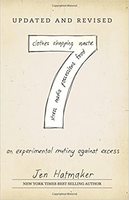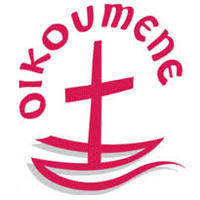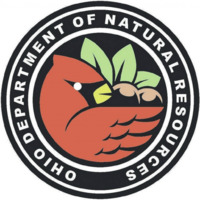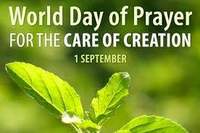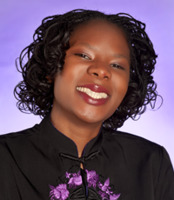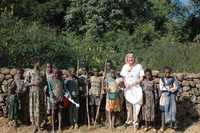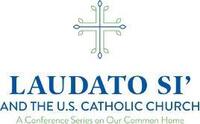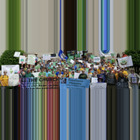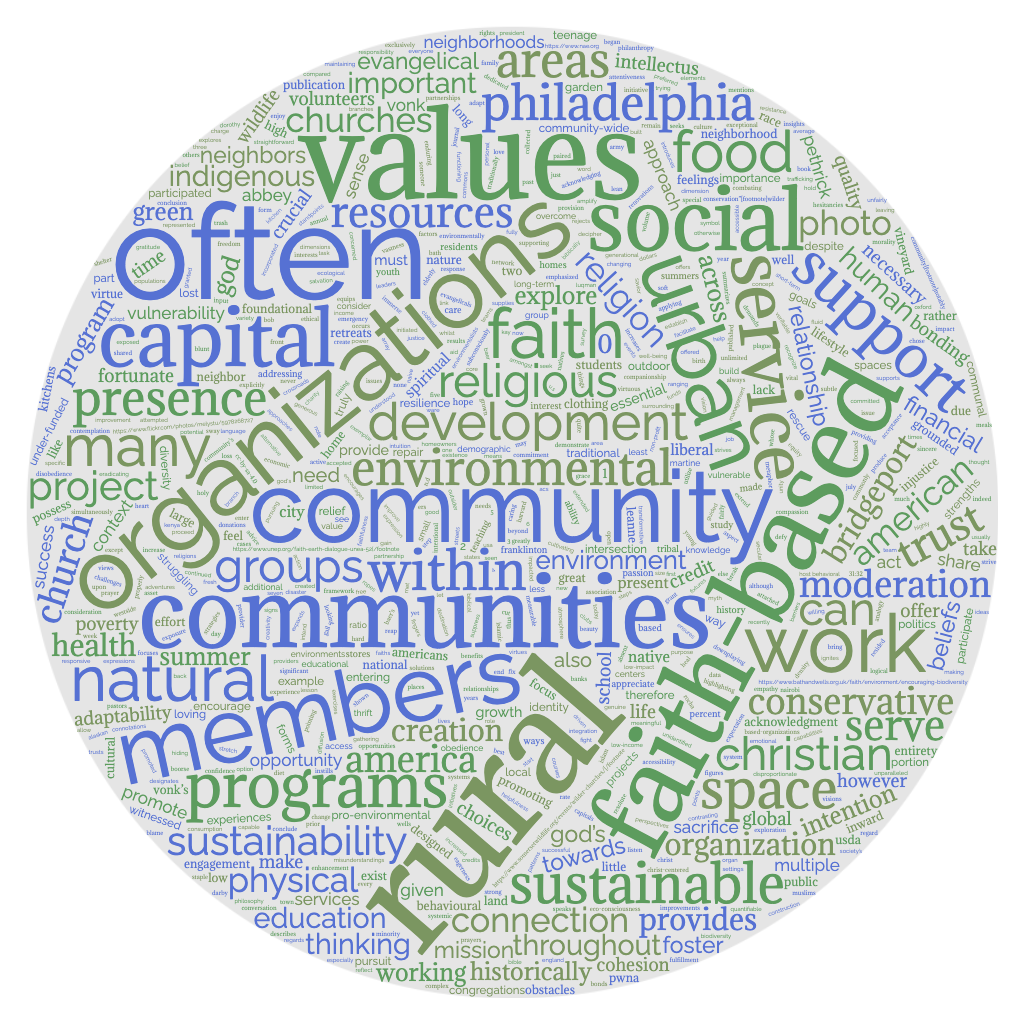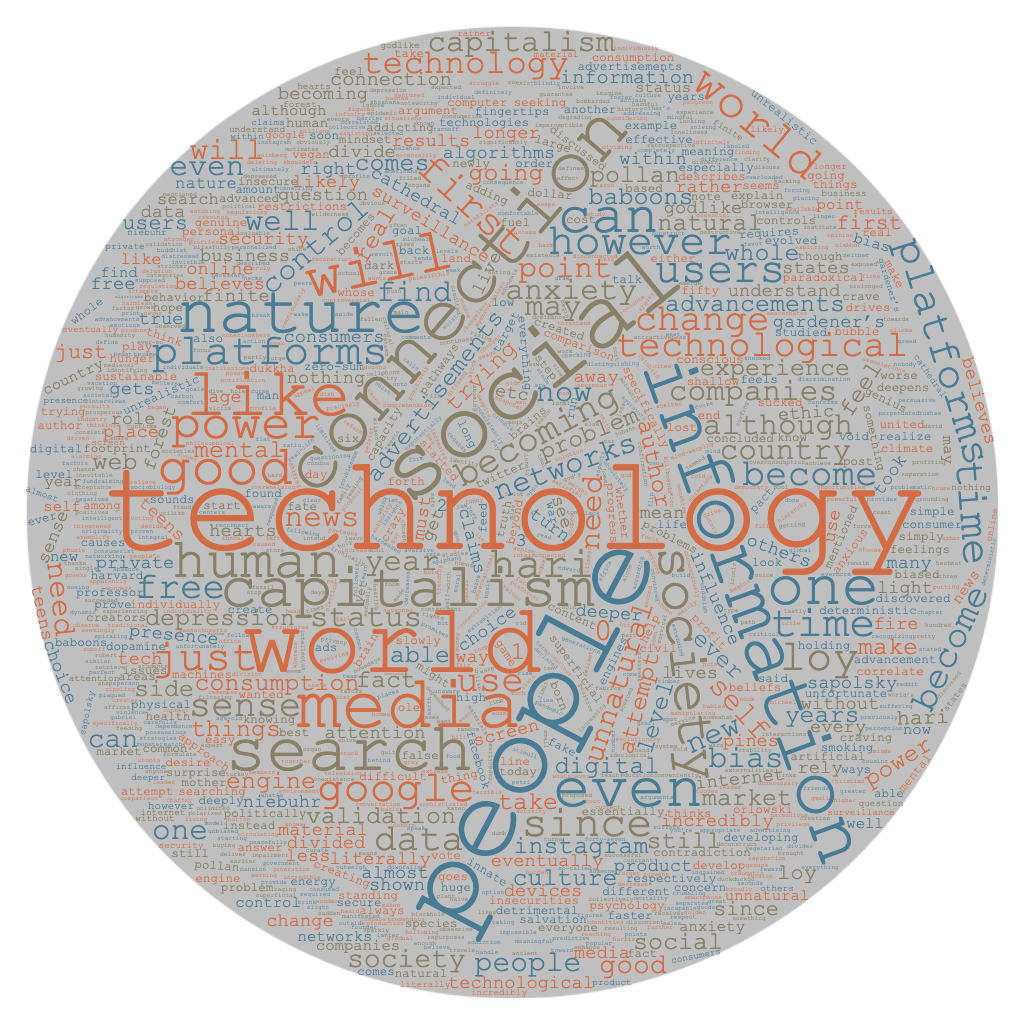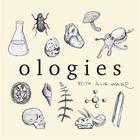Search
173 items
-
7: An Experimental Mutiny Against Excess
Overwhelmed by the excess in her own life, Jen Hatmaker and her family set out on a project they called “Seven.” Highlighting seven areas of excess, they committed to living a little more simply every month. Originally published in 2011 and updated in 2017, 7 has been utilized for book studies in many Christian faith communities. For those overwhelmed with the task of implementing creation care in their own lives, Hatmaker’s memoir tells of her family’s practical and faith inspired experiment. More information about Hatmaker’s project can be found on her blog. -
Justice for Each Generation
Justice for Each Generation started with the landmark case, Juliana v. U.S. Twenty-one youth had filed a lawsuit against the United States government for its role in causing climate change and violating their right to life, liberty, and property, while also failing to protect essential public resources. They are calling for sermons from youth and adults of all faiths as a collective statement that sends a signal to the rest of society. -
Pope Francis and Environmental Leaders Forge Vision for Global Action
Environmental leaders, activists and advocates gathered with Pope Francis for a two-day Vatican-organized conference with hopes to emerge with a shared vision for protecting our planet. The conference was inspired by the third anniversary of the Pope’s encyclical and was attended by political and religious leaders, scientists, economists and heads of civil society organizations. Inspired by the call for unity and action in the encyclical, UN Environment also introduced their Interfaith Rain-forest Initiative at the conference. -
WCC Executive Committee: global biodiversity crisis reaches urgent level
This article from the World Council of Churches discusses the current biodiversity crisis. The majority of land surfaces and ocean areas are significantly modified, and over 85% of the wetlands are gone. The following excerpt notes how this subsequently affects the poor and vulnerable:
"The statement notes that, increasingly, the drive for relentless expansion built into dominant economic systems are endangering the survival of many of God’s creatures. 'Ultimately our significant and adverse impacts on ecology will impact humanity’s own future,' the statement reads. 'Already they are destroying the very basis of sustenance of our income-poor, vulnerable and Indigenous sisters and brothers, who contribute least to the ecological damage for which human beings are collectively responsible.'" -
Interfaith Rainforest Initiative
From the organization's website: "The Interfaith Rainforest Initiative is an international, multi-faith alliance that aims to bring moral urgency and faith-based leadership to global efforts to end tropical deforestation. It is a platform for religious leaders to work hand-in-hand with indigenous peoples, governments, civil society and business on actions that protect rainforests and safeguard those that serve as their guardians." The initiative focuses on raising awareness, mobilizing action, and influencing policy. -
Engaged Organizations: Stratford Ecological Center
The Stratford Ecological Center is an organic farm and nature preserve that provides education sessions, tours, and hiking trails to the public. They also offer various workshops and classes on an ongoing basis.
Trinity Catholic Elementary School 4th and 5th graders participation each year in a 5-day environmental camp "Messages of the Earth" at the Stratford Ecological Center. -
Engaged Organizations: Kenyon College Brown Family Environmental Center
The Brown Environmental Center at Kenyon College offers both self-guided and educational sessions that showcase their diverse range of natural habitats that are maintained at the center.
St. Vincent de Paul in Mt. Vernon, Ohio makes annual trips for their K-6 students. -
Christians and Endangered Species
Throughout time, it has often been difficult to reconcile concepts from both biology and theology. This article focuses on the critical impact of endangered species with regard to various Christian religions. Citing biblical text, especially the story of Noah’s Ark, many religions have deemed the preserving and caring for all living creatures to be of utmost importance. -
Tomorrow (Sept. 1) is World Day of Prayer for the Care of Creation: Pope Francis calls on believers and unbelievers to care for our common home
Thursday, September 1, 2016, has been declared a shared World Day of Prayer for the Care of Creation by Catholic and Orthodox Christian communities. This year, Pope Francis issued a video invitation to prayer in which he calls believers and unbelievers alike to work together to care for our common home. In August of 2015, the pope issued a letter
(https://w2.vatican.va/content/francesco/en/letters/2015/documents/papa-francesco_20150806_lettera-giornata-cura-creato.html) declaring Sept. 1 as an annual day of prayer for the care of creation, joining the Orthodox Church, which has been doing so since 1989. Citizens are urged to pray and join a local prayer service, or if no local service is offered, representatives from Catholic, Protestant, Orthodox and Episcopalian churches will offer an online prayer service (https://seasonofcreation.org/2016/08/25/sept-1-online-prayer-service/) at 8am US EDT. -
Dalai Lama Espouses Sustainability in Business
His Holiness the Dalai Lama recently spoke in Brussels to promote global responsibility in business and economics for the sake of social and environmental sustainability. His appearance was coordinated with the recent publication of Business as an Instrument for Societal Change: In Conversation with the Dalai Lama (https://www.routledge.com/go/greenleaf-publishing), a book by Sander Tideman. For more information about the Dalai Lama’s teachings on the environment, visit his website and browse his list of environmental speeches and messages (https://www.dalailama.com/messages/environment). -
Profile: Melanie Harris
Dr. Melanie L. Harris is Associate Professor of Religion at Texas Christian University in Fort Worth, TX . There, she teaches and conducts research in the areas of Religious Social Ethics, African American Religion and Environmental Justice. She is a GreenFaith Fellow and co-director of Earth Honoring Faith with Ghost Ranch Education and Conference Center. Dr. Harris is currently a member of the Board of Directors of KERATV/Radio in Dallas and facilitates contemplative retreats as a licensed Spiritual Director. She is the author of Gifts of Virtue: Alice Walker and Womanist Ethics (Palgrave), as well as coeditor of the volume Faith, Feminism, and Scholarship: The Next Generation (Palgrave) and editor of Ecowomanism: Earth Honoring Faiths (Brill).
Along with Dr. Jennifer Harvey, Dr. Harris conducts workshops about racial justice, womanist ethics and environmental justice. She has presented to audiences in the AME, United Church of Christ, and Baptist church traditions. -
6 Ways to Green Your Holiday
6 Ways to Green Your Holiday is a graphic made by the Sierra Club. It gives 6 easy ways make Christmas traditions more sustainable. To view the image, click below or *download* -
Creation Care Hack: Train Yourself to use Reusable Shopping Bags
Creation Care Hack: Train Yourself to use Reusable Shopping Bag is a post from Evangelical Environmental Network MOMS. The article discusses how using a reusable shopping bag is only easy if you make it a habit, which can be difficult. It then gives a few tips on how to make this sustainable practice a habit. The article also has a graphic on how plastic bags are killing the planet, which can be found below. The author finishes by saying, “If the 70% of Americans who identify as Christians practiced using less disposable plastic bags what a witness and difference that could make.” See additional attached media for an infographic (.jpg) for visual information on plastic bag use. -
12 Days of Christmas Recycling
12 Days of Christmas Recycling is an article from Evangelical Environmental Network about all the “stuff” that accumulates over Christmas. December is the highest month for landfill deposits with household waste increasing by 25% between Thanksgiving and Christmas. An average of 30 million Christmas Trees will end up in landfills and 4 million tons of wrapping paper and gift bags will be used. The article gives 12 ways to “reduce the overuse” and to move the focus of Christmas back to the birth of Jesus. -
Tu' B'Shvat: The Green of Judaism
Tu B’Shvat: The Greening of Judaism is a handout from Interfaith Family. It offers a brief overview of Tu B’Shvat and different activities to celebrate the holiday. It also offers examples of how to be caretakers of the earth. To read the entire handout, click below. -
Catholic Climate Covenant Earth Day Video
Catholic Climate Covenant has created their 2018 Earth Day video Beyond a Throwaway Culture. The focus of the video is the harm that comes from single-use disposable plastics - how it contributes to both land and marine pollution. -
Ethiopia’s Church Forests
The beautiful forests of Ethiopia are rapidly disappearing due to human activity. However, the forests around the Ethiopian churches remain intact and teeming with diverse life. Dr. Margaret D. Lowman, known as Canopy Meg, has teamed up with one of these churches to study and survey the wildlife, mostly insects in the area. The children of the church community are being engaged to become the next generation of stewards in order to ensure that the forests and creatures are preserved. Project leaders also aim to help build walls in order to keep these forest areas more protected from human development. -
Laudato Si' and the U.S. Catholic Church Recordings
"The 2023 Laudato Si’ and the U.S. Catholic Church (June 14-July 27, 2023) national conference, is part of a biennial conference series co-sponsored by Creighton University and Catholic Climate Covenant to equip and inspire Catholics to more deeply integrate Laudato Si’ and its creation care teachings into the U.S. Church. The purpose of this year's conference is to encourage a greater understanding of the Laudato Si’ Action Platform’s seven goals – Response to the Cry of the Poor, Ecological Economics, Adoption of Sustainable Lifestyle, Ecological Education, Ecological Spirituality, Community Resilience and Empowerment, and Response to the Cry of the Earth – and encourage Catholic individuals and groups to enroll in the Platform, providing them with a clearer path for accomplishing each of the goals through speaker presentations." -
Religious Groups Combatting Rising Sea Levels in Louisiana
Donald and Theresa Dardar have made it their mission to save the the susceptible coasts of Louisiana from rising sea levels due to climate change. Joining forces with the local Presbyterian church, Donald and Theresa have preserved sacred mounds, refilled oil field canals, and have built elevated greenhouses. Numerous faith groups in Louisiana have prioritized saving the environment as impoverished people experience heightened effects of climate change. Preserving the community around these faith groups drives individuals to maintain the unique and celebrated environment of Louisiana. -
United Church of Christ Environmental Justice Ministries
"From the birth of the environmental justice movement in the 1980s to the local ministries of churches throughout the country today, the United Church of Christ has been making a profound difference in caring for God’s creation. Learn more about our history, the Creation Justice Church program, Earth Day resources, the Pollinator newsletter, Creation Justice Webinars, and the work of the UCC Council for Climate Justice." -
International Indigenous Youth Council
The International Indigenous Youth Council is a youth-led organization of 9 chapters across Turtle Island. They seek to protect Indigenous land and culture through spiritually-guided community organizing and nonviolent direct action. IIYC was founded after the Standing Rock Indigenous Uprising of 2016, and is credited with successfully defending protecting the Cannonball and Missouri Rivers from the Dakota Access Pipeline construction. Today, they spearhead actions against policy, pipeline construction, and climate finance contributing to the climate crisis directly effecting their communities. -
The Essential Presence of Faith-Based Organizations in Sustainable Community Development
This chapter from the student-written book “Emerging Perspectives on Religion and Environmental Values in America” explores the presence of religious organizations providing service to local communities. It discusses the broad range of faith-based organizations and their many projects, and how engaging with these organizations and programs can improve connections to one's environment and spirituality. Below is the first paragraph of the chapter to introduce the discussion.
"The presence of faith-based organizations as social, human, and cultural capital within every community, regardless of demographic dimension, politics, race, and income demonstrate the resilience of religion as an asset essential to the cultivation of sustainable community development. Throughout history, religious groups have served as providers of essential services for the less fortunate, and advocates for social justice and equity in both rural and urban communities. Despite trying circumstances, this resolute effort over time and their relative success in providing support to those in need, has afforded faith based-organizations credibility, and in some cases their role is indispensable." -
Technological Takeover or Technological Makeover?
This chapter from the student-written book “Emerging Perspectives on Religion and Environmental Values in America” explores the recent and rapid development of technology and its impact on our environmental actions. It discusses trends of consumerism, social conflict, and disconnection. Below is the first paragraph of the chapter to introduce the discussion.
"Is it just me or does it feel like the whole world is going crazy? From a global pandemic, to a civil rights revolt, to talk about election fraud, it seems like everything is spiraling out of control and technology seems to be adding fuel to the fire. It feels as if technology is the invisible hand that controls us all on every level, individually and as a culture. As technological advancements push further, the concern for the problems perpetuated by them rises as well. I am not trying to be labeled as a 'Karen' of my generation, but technology is slowly eating away at our brains and degrading the fabrics that hold our society together." -
Ologies: Critical Ecology (SOCIAL SYSTEMS + ENVIRONMENT) with Suzanne Pierre
"How do societal structures affect the planet? Why should we get to know our neighbors? What’s the ecological price we pay for … stuff? Yep, there’s an -ology for that. We chat with the founder of Critical Ecology: biogeochemist, National Geographic Explorer, researcher and plant nerd, Dr. Suzanne Pierre. Dr. Pierre’s Critical Ecology Lab is involved with research on the biomes of former plantations, air pollution, agricultural runoff, and even asking questions about wildfire science and the prison system. She explains how the Big Picture can always zoom out and be a little bigger. Before you know it, you’ll see Critical Ecology everywhere you go."

